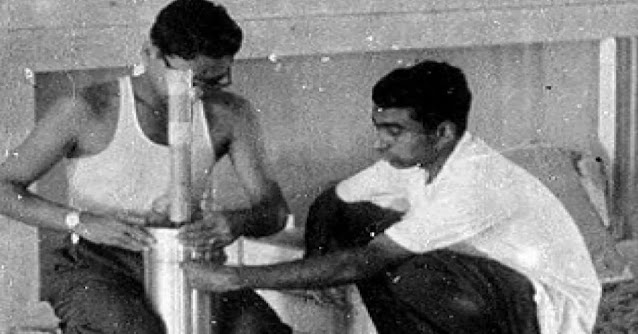In the annals of scientific history, there are a select few whose brilliance and unwavering dedication have left an indelible mark on their nation's progress. One such luminary was Vikram Sarabhai, a visionary scientist and engineer whose contributions reverberate through India's space program and nuclear power industry to this day. Often hailed as the "Father of the Indian Space Programme," Sarabhai's life and work are a testament to the power of scientific innovation in shaping a nation's destiny.
Born in Ahmedabad in 1919, Sarabhai's early education took him to the prestigious University of Cambridge and the Massachusetts Institute of Technology, where he honed his skills in physics and laid the groundwork for his future endeavors. Upon returning to India, he embarked on a journey that would forever change the trajectory of Indian science and technology.
In 1962, Sarabhai founded the Indian Space Research Organisation (ISRO), an institution that would become synonymous with India's space ambitions. He understood that space exploration wasn't a mere scientific endeavor but a strategic imperative for a rapidly developing nation. With ISRO, Sarabhai nurtured the dreams of countless Indian scientists and engineers, paving the way for the nation's rise in the global space arena.
One of his pivotal achievements was the establishment of the Thumba Equatorial Rocket Launching Station in 1963. This station, nestled in the coastal town of Thumba in Kerala, became India's launchpad to the stars. Sarabhai's vision and foresight saw India soar to new heights in space research.
In 1975, India marked a historic milestone under his leadership by launching its first satellite, Aryabhata, into orbit. This achievement not only put India on the map as a spacefaring nation but also showcased Sarabhai's unwavering determination.
Tragically, Vikram Sarabhai's life was cut short when he passed away in 1971 at the age of 52. Yet, his legacy endures, a guiding light for generations of scientists and engineers who continue to push the boundaries of what is possible in India's space program and nuclear industry.
In conclusion, Vikram Sarabhai was not just a scientist; he was a visionary whose dedication, innovation, and passion left an indelible mark on India's scientific landscape. His contributions to space exploration, nuclear power, and societal development remain as a testament to what a single individual can achieve with unwavering commitment to science and the betterment of society. As we remember the legacy of Vikram Sarabhai, we are reminded that the pursuit of knowledge and the application of science have the power to shape the destiny of nations and inspire future generations.


_near_Mumbai.jpg)
Comments